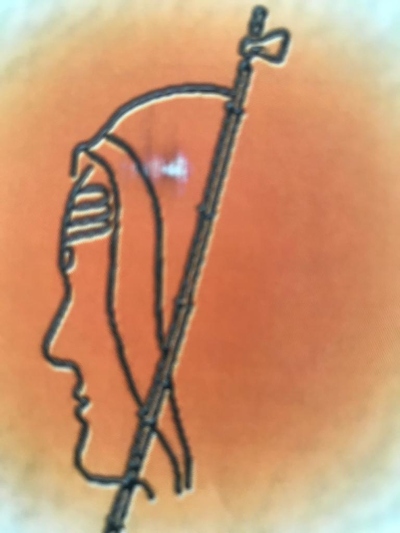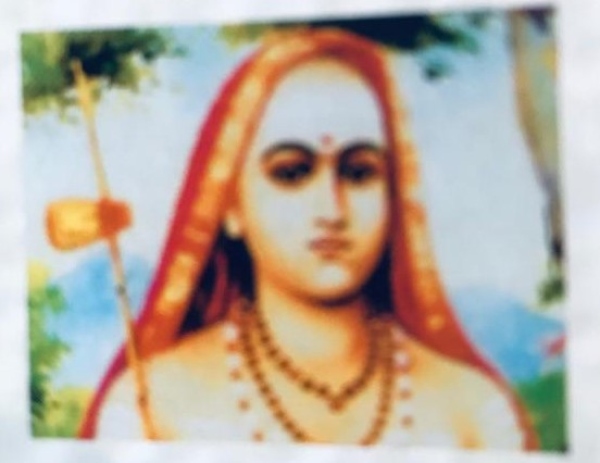Latest Contributions
Read More Contributions
Adi Sankara

Manickavasagam, or Vasagam for short, graduated as a civil engineer in 1964. He joined the Indian Army in 1965 and became a 'Fauji'. During his career with the armed forces, he served in Leh, Ladakh and Poona (now Pune).
Vasagam joined Indian Revenue Service (Customs and Central Service) in November 1971. Switching over from olive green to civvies was difficult initially but time was a healer. Upon superannuation, he joined the Central Administrative Tribunal and served for the 5 years and 9 months as Administrative Member.
Vasagam is a prolific writer and has already penned three novels in Tamil and hopes to finish the fourth essay within a year. He headed a team which produced a CD-ROM on the life and teachings of Adi Sankara.
These days, Vasagam is leading a retired life with his spouse. His elder son is a computer engineer who lives in America while the younger one is based in Bengaluru. Vasgam is blessed with two grandchildren.
Adi Sankara left indelible mark on the religious map of India. Adi Sankara, though lived centuries ago (8th cent AD), had travelled far and wide through the length and breadth of India, revived the glorious Hindu traditions, fought corrupt practices, contributed enormously to the religious literature, and immensely increased the philosophic content of the Hindu religion.

He was a colossus among men and an administrator par-excellence, who established for the first time monastic training traditions in the Hindu religion.
Adi Sankara lived in 8th century. He attained ‘mukti’ at the age of 32 in Kedarnath. According to some sources, he lived some 2500 years ago; but this theory is not widely accepted.
Adi Sankara’s birth place is Kalady, a village on the banks of river Periyar in Kerala state. He was born to Aryamba and Sivaguru. Kanchi mutt has built a temple in his memory at Kalady. It is a place of tourist importance.
“Kanakadhara Stotram” is attributed to him. When he went for asking ‘bitcha’ (alms) to a household, the poor woman had nothing to offer except a fruit of amla (Indian gooseberry). She felt embarrassed that she had nothing more to give to the young Sanyasi.
Sensing this, and the poor living conditions, Adi Sankara invoked goddess Mahalakshmi to bless the house. He sang Kanakadhara stotram. Lo and behold, golden amla coins poured into the house. A house in Kalady is still identified as the beneficiary.

He travelled from Kalady towards upcountry and met his future guru Govinda Bagavatpada. He stayed with his guru and learned a lot about Hinduism in the next four years. He was sixteen years old then.
Adi Sankara wrote a number of commentaries on Upanishads, Bhagavad Gita, et-all. About 30 works are attributed to him, though some claim that Adi Sankara is the author of as many as 300 works . Some of the famous and popular hymns are Bhaja Govindam and Soundarya Lahari.
He travelled extensively from south to north and east to west of India. He established four peedams (Dhams), namely Govardhan, Dwaraka, Jyotirmath and Sringeri Saradapeedam.
Legends galore. Adi Sankara promised his mother, that at the time of her death he will be by her side and conduct final rites without fail. This promise was made before he undertook padayatra.
When the time came, he knew by intuition, and reached home to be by the side of his mother. After her passing away, he single handedly completed the final rites- as nobody in the village encouraged or cooperated with a Sanyasi to perform final rites. He ignored their advice and noncooperation. Thus, he fulfilled the promise made to his mother.
Adi Sankara’s visit to Mookambika temple, (Karnataka), his debate with Mandana Misra are some of the most outspoken popular legends.
Adi Sankara is credited with the advaita school of thought (non dualism). He fought against Buddhism. He was against the ritualistic oriented mimamsa school of Hinduism. He was a great scholar and his commentaries on Vedic canon Brahma Sutras, Upanishads and Gita are discussed till date by academics.
In a manner of speaking, his life and teachings was the fountain head of the revival of Bhakti movement in India. It started from Kalady spread to the region, where Nayanmars (Saivites) and Azhwars (Vaishnavites) gave a fillip.
Then it moved up north to the present day Karnataka, Andhra, Telangana, and Maharashtra. There was nothing to stop them. That’s how Buddhism and Jainism were subdued. The full credit for this transformation must go to Adi Sankara and his advadist philosophy.
In the present days it is inconceivable that a man , in about twenty years of life time, would walk the length and breadth of India spreading his ideas, and succeed in establishing four monasteries (Dhams). In that Kanchipuram, in Tamil Nadu has a special place, because Adi Sankara stayed in Kanchi mutt for some time which he never did in other places. Kanchipuram in olden days was known as a place for learning; it had a university.
Bhagavad Gita Sloka2.20 :“Na hanyate, Na hanyamaane.”
Soul is eternal; there is no birth, no death.
Adi Sankara reportedly attained Samadhi in Kedarnath at the age of thirty two, after accomplishing something which very few human beings can achieve in a life span of just thirty two years.
Comments
Adi Sankara
A complete biographical sketch of the great Indian Philosopher, Adi Shankaracharya. Beautiful Article !
adi Sankara
The Article by our dear Batchmate, Manickvasagam , on Adi Shankaracharya is a testimony to his wide reach & knowledge about the Great Indian Philosopher !
Adi Shankar was one of the Greatest philosophers & Logicians of not only India, but of the whole world. His philosophy of Advait Vedant remains unchallenged even today. Academicians have been interpreting it & despite differing views, it continues to remain unrefuted till date ! His commentaries on the 10 Principal Upanishads, the Brahm Sutra of Badarayan and the Bhagavadgita are testimony to the monumental literature written by him & reverred by philosophers of all ages !
In addition, his poetic utterances on Bhakti ,and devotional songs like "Bhaj Govindam" & invocation to "Mother Durga" enthral millions of devotees.
His great organisational capacity to to unite entire India by establishing "Char Dhama", in the four corners of India , is also no mean achievement !
Our salutations to Adi Shankar, one of the All Time Greatest Personalities to be born in India ! !
Congratulations dear Manick !
Add new comment